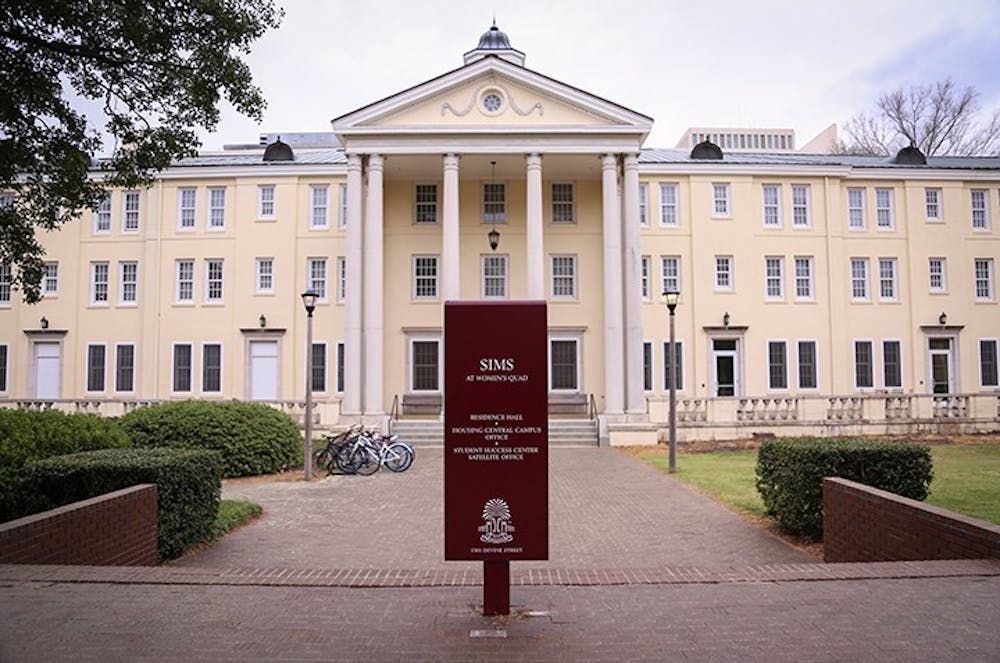When USC alumna Heather Armel first googled Strom Thurmond after hearing about renaming the Strom Thurmond Fitness Center on social media, she was horrified to discover who he was.
“I remembered hearing something about Strom when I was on campus, and I just googled his name, and the first thing that pops up is ‘pro-segregation politician’ and ‘racist politician,’” Armel said. “I was pretty embarrassed that I said the name Strom on a daily basis while I was at USC, and then just to hear what his legacy really was.”
This inspired Armel to start a petition to rename the Strom Thurmond Fitness Center on USC’s campus. As of June 16, the petition has over 13,000 supporters.
“My main goal is just to get as many supporters as we can to put pressure on the university to acknowledge that they want the buildings’ names to be changed, and then put the pressure on politicians and people who have the ability to repeal the Heritage Act,” Armel said.
Armel is working with the organizers behind RepealTheHeritageAct.org, a group of 25 students and alumni from USC, Clemson and the College of Charleston.
Alumna Helen Knight, an organizer for RepealTheHeritageAct.org, said they began the petition to repeal the act on June 6.
“[We] did not view it at that point as an organization or a movement but found that totally independent from us," Knight said. "Coincidentally, several other students and alumni from the state had started separate petitions on the same topic, and we decided to all merge forces and come together."

The Heritage Act, passed in 2000, forbids public memorials for war, historical figures or events to be removed. Removal of anything protected under the Heritage Act requires two-thirds vote of the South Carolina legislature. In 2015, the act led to the removal of the Confederate battle flag from the Statehouse dome.
“USC has said for years that their hands are tied, essentially, on making changes to buildings like Sims Hall that has received significant protests from students who are required to live there,” Knight said. “Repealing the Heritage Act would make it much more possible for universities to meet student needs.”
Sims residence hall was named after J. Marion Sims, a USC alumnus who conducted medical experiments on enslaved African American women and children without anesthesia.
During the latter part of his presidency, President Emeritus Harris Pastides endorsed the idea of a Presidential Commission to begin the discussion of renaming buildings on campus.
“The recommendation was from my diversity and inclusion committee," Pastides said. "We had made a lot of progress, but still, there was a need for a more open telling of the university’s story with particular respect to disenfranchised and marginalized people and communities from the past."
Pastides wanted to start the commission, but he said he knew the work wouldn't be finished under his tenure. He introduced the idea to current President Bob Calsen, who “embraced the idea” and named Pastides co-chair.
The Presidential Commission has 20 members, including trustee William Hubbard and director of SC Collaborative on Race and Reconciliation Jennifer Gunter.
According to Gunter, the Presidential Commission met twice in the fall but hasn’t met since due to COVID-19. She said she isn’t aware of a call for the committee to talk with legislators.
“Students are the ones that really have the power in the situation,” Gunter said. “They were the reason why we got markers on the Horseshoe commemorating the impact of slavery on our campus.”
On June 15, President Caslen endorsed and “moved forward to the Board of Trustees a resolution from the Presidential Commission on University History to rename the J. Marion Sims residence hall.”
The recommendation came after Clemson decided to rename its honors college on June 12. Initially, the honors college was named for John C. Calhoun, a well-known slavery advocate.
The board will discuss renaming buildings at its June 19 meeting.

